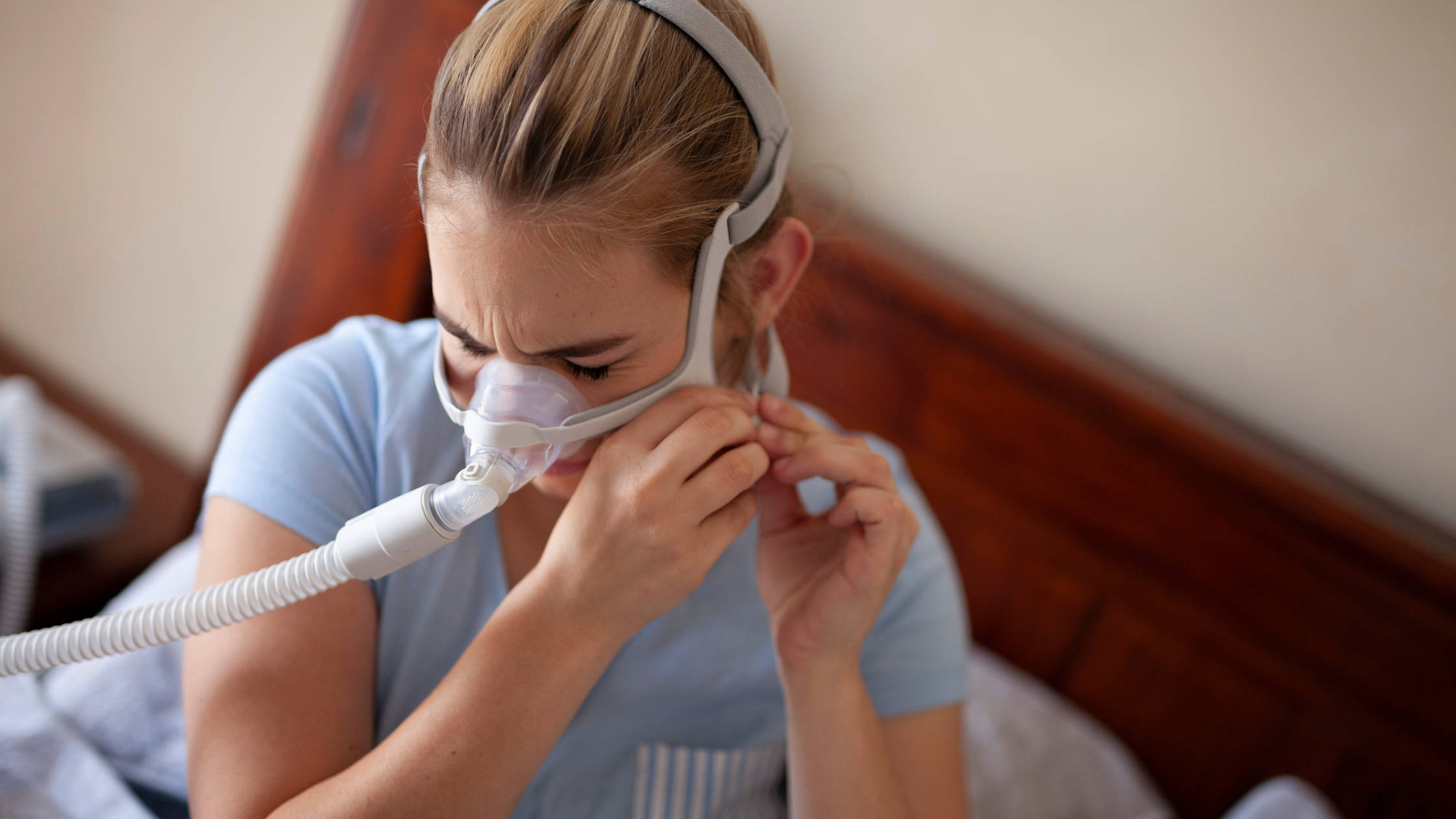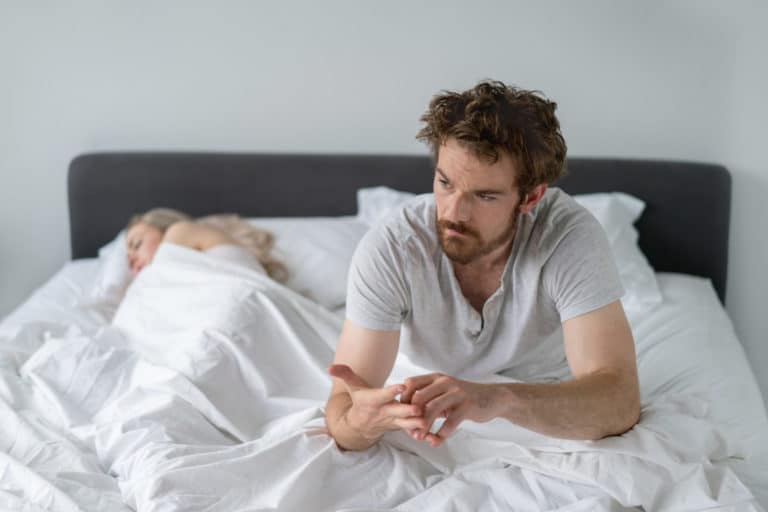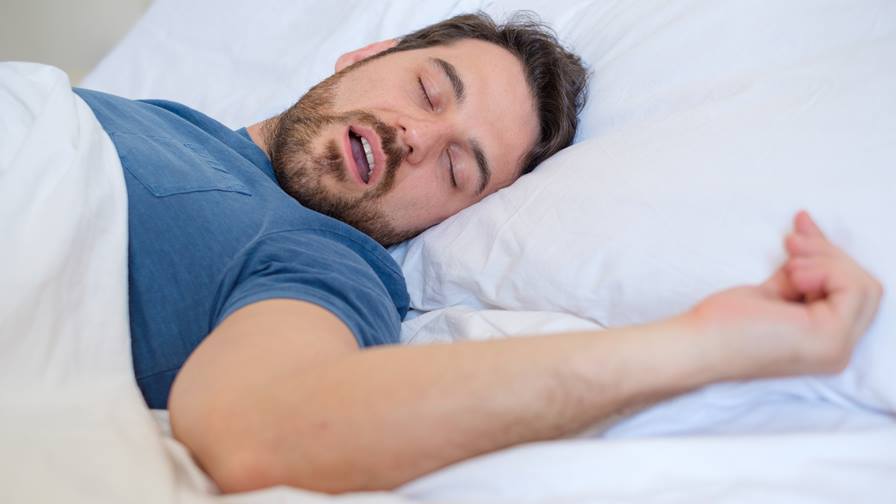
Detective measures for sleep apnea
Even if you get enough sleep, if you often wake up with a headache or feel as if you are continually weary throughout the day, you may have a sleep disorder like sleep apnea.
Sleep apnea is common and, if untreated, might have serious health consequences. As a sleep medicine specialist, it is essential to me to not only educate my patients about the potentially serious risk that sleep apnea presents to their overall health, but also to provide them the treatment options that are most appropriate for their unique situations.
What is sleep apnea?
When sleeping, a person with sleep apnea stops breathing. Throughout the course of the night, these pauses may happen up to 400 times and last ranging from a few seconds to more than a minute. They may be observed occasionally, but they can sometimes go unseen.
The kind of sleep apnea that is most common is obstructive sleep apnea. When someone is asleep, their airway is blocked by their tongue or other throat tissues. As a result, airflow is constrained or stopped, making breathing more difficult.
Why does it matter so much?
Even a little delay in breathing may cause loud snoring and disrupt sleep. As a consequence, you feel tired or irritable throughout the day. But I make sure to explain to my patients that occasionally the effects are far more severe.
Sleep apnea deprives the body of oxygen. The body’s immune system reacts by triggering inflammation when tissues are damaged by pathogens, trauma, toxins, heat, or any other factor, including insufficient oxygen. It’s possible that the blood’s lower oxygen content may increase inflammation. The body then releases chemicals that cause blood vessels to leak fluid into tissues, which results in swelling.
Short-lived (acute) inflammation is distinct from chronic inflammation. Chronic inflammation may result in serious, lifelong health problems. Sleep apnea and chronic inflammation have been linked. As a result, if it is left untreated, it may raise the risk of heart disease, high blood pressure, and other illnesses.
See Also: Guide to Using CPAP Machine Humidifier in the Summer

Are you at risk?
Sleep apnea affects people of all ages, even those who are otherwise healthy, like me. However, the risk does grow with age. The way we breathe when we sleep is impacted by aging-related structural changes in the brain. This may be one reason why the risk of sleep apnea rises with age.
Another possibility is that as we age, our necks and tongues tend to develop more fatty tissue.
People are also more likely to develop sleep apnea if they have high blood pressure, use alcohol or sedatives, have certain physical traits like large tonsils or nasal polyps, have a wide neck circumference, or are obese.
What are the symptoms of sleep apnea?
I often notice a few sleep apnea symptoms. Patients often ask for my opinion on problems like:
Snoring that is unbearably loud; gasping or choking noises.
These might be so loud that you wake up from them. Other times, your roommate or bedmate may be the one paying attention.
Always feeling exhausted or waking up with a headache.
You can have trouble going asleep and staying awake all day if your breathing stops. When your airway is obstructed, your blood vessels expand, your carbon dioxide levels rise, and your oxygen levels drop. This may cause headaches in the morning.
Having trouble concentrating, feeling irritated, depressed, or both.
Your mental and emotional health depend on getting enough sleep. Your memory, ability to learn, and ability to think may all be affected by sleep deprivation.
How Does Sleep Apnea Develop in Your Body and Throat?
The most common type of sleep apnea, obstructive sleep apnea, is caused by excessive relaxation of the throat muscles and the soft tissues in the back of the throat, including the tonsils, tongue, and adenoids (the tissue that sits just behind the nose high up in the throat). This repeatedly blocks the upper airway while you are sleeping.
The tissues called children’s adenoids, which sit high in the throat, serve as a kind of germ-trap. They normally diminish by the time individuals reach their teen years.
Although not all snorers have sleep apnea, those who do often snore loudly.
As soon as your brain notices you are not getting enough oxygen, it signals your body to breathe. A person with obstructive sleep apnea may snort, cough, gasp, or act as if they are choking before they are able to breathe properly again.
According to MedlinePlus, a distinct, far less common kind of sleep apnea arises when your brain is unable to properly connect with the breathing muscles.
It is more common in people who have conditions like a brain infection, a stroke, heart failure, or who use certain drugs like opioids or benzodiazepines.
The third kind of sleep apnea is known as complex sleep apnea syndrome, and it is characterized by both central and obstructive sleep apnea, according to a report published in Chest in October 2016.
Although this kind of apnea has just recently been identified as a condition, the fundamental reasons are still unclear.

Who is Susceptible to Sleep Apnea?
Sleep apnea may affect anybody, but certain groups of individuals are more likely to develop it due to particular risk factors. These risk elements consist of:
history of sleep apnea in the family. Ask your family members whether they have been diagnosed with sleep apnea since genetics play a part in OSA.
large neck measurement. A person’s airways may be more surrounded by fat if their neck is broader or thicker, which might put pressure on them at night and interfere with breathing.
Age. Older men and women are more likely to have sleep apnea, and aging may raise the chance of getting OSA. However, persons of any age or gender might still develop this illness.
imbalances in hormones. Acromegaly and hypothyroidism are two disorders that may enhance risk.
certain neurological disorders. Those who have neurological diseases like Parkinson’s or Alzheimer’s may be more susceptible to getting CSA.
Three ways to diagnose sleep apnea without a sleep study
A sleep study is one of the many methods doctors may find out whether a patient has sleep apnea. A sleep study, also known as a polysomnogram, entails spending the night in a facility that can track your breathing.
However, individuals who feel uncomfortable spending nights away from home or who don’t have a lab close by could find sleep studies bothersome. Fortunately, physicians can diagnose you in various ways. A physician could
Check you out and assess your symptoms. Doctors might examine you for edema or check for obstructions in your airway. They may also aid in excluding other potential illnesses. Additionally, qualified dentists like those on the staff at Muscaro & Martini Dentistry may assist in screening you for sleep apnea and provide advice.
Apply an app. Snoring may be monitored using a number of different smartphone applications. These applications often record you at night while listening for loud noises. These applications may also pick up other noises, such as road noise, but they cannot pick up sleep apnea that doesn’t include snoring.
prescribe a sleep test for at-home use. In an at-home test, your heart rate, airflow, and breathing patterns are measured using a tiny monitoring equipment. However, certain instances may not always be correctly picked up, therefore your doctor may combine this with additional screening techniques.
Therapy Alternatives
The greatest sleep apnea treatments have already been discussed. In summary, physicians and dentists advise using four major therapies to control this problem.
oral devices. These simple, detachable devices resemble the bite guards used to prevent teeth grinding. The jaw or tongue are held in position by oral appliances for sleep apnea to avoid obstruction of the airways. For individuals who qualify, we at Muscaro & Martini Dentistry prescribe oral appliances.
PAP devices. With the use of a specific mask, positive airway pressure (PAP) devices may be used at night to encourage airflow. The CPAP machine is the most popular variety, however APAP and BiPAP equipment are also available. PAP machines may be useful, but some individuals find them to be large and difficult to wear.
Changes in lifestyle and sleep habits. Some people get relief by decreasing body fat, increasing their exercise, and exclusively sleeping on their sides. If you have problems managing your sleep apnea, though, it’s crucial to speak with a doctor since it’s possible for sleep apnea to remain despite lifestyle modifications.
Surgery. A deviated septum or inflammation in the tissue at the back of the throat may sometimes be the cause of sleep apnea. Surgery may assist with certain problems, but it is normally only used as a last resort if all other options have failed.
The Benefits of a Sleep Apnea Dentist
We are committed to assisting our patients in overcoming the symptoms of their sleep apnea. When alternative treatments have failed, we assist patients in becoming comfortable using handy oral devices that are simple to use.
Schedule a consultation with us right now to learn more about how we can help you manage your sleep apnea or visit our sleep apnea website to read about our state-of-the-art treatment options. We are eager to meet you and assist you in having a better night’s sleep!
When should you request help?
The diagnosis of sleep apnea may be difficult to make on your own. And it’s easy to blame fatigue, headaches, impatience, stress, or other factors for the issue. If you often feel tired despite going to bed at a normal time or if your roommate or sleeping partner complains about your snoring, it’s imperative that you see a sleep specialist.
I do a physical examination initially when a patient discloses symptoms that mimic sleep apnea. It often includes looking for risk variables like those I just mentioned.
Final thoughts
The interruptions are usually so brief that most people don’t even realize they’ve been awakened during the night, but this persistent disruption of the regular sleep cycle can make people feel exhausted and sleepy during the day and put them at a higher risk for health issues linked to sleep deprivation and lower blood oxygen levels while sleeping, such as irritability, memory or concentration issues, anxiety, and depression.
